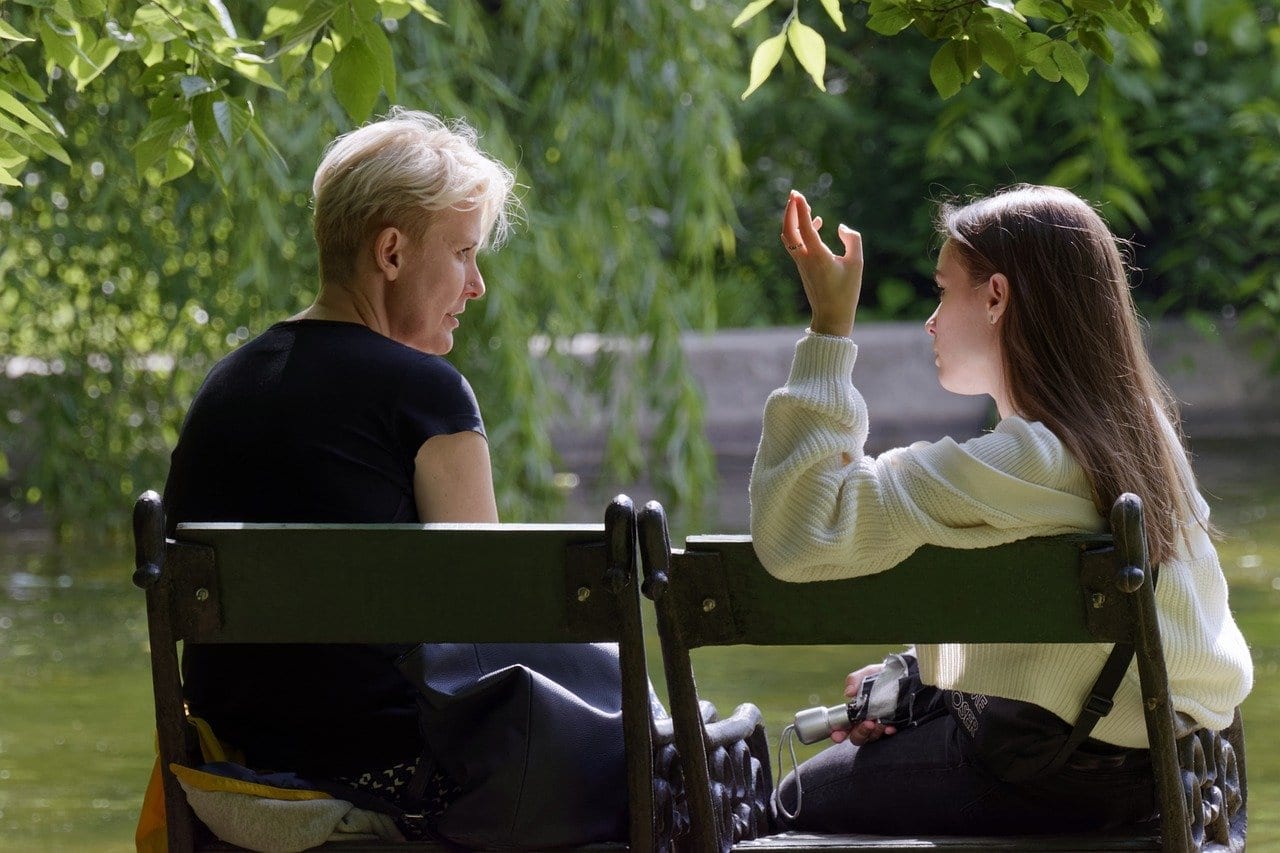
Continuing the Conversation
Earlier this week we discussed how to start the conversation with your child about the issue of sex trafficking, check out our blog post here.
It is important to have an ongoing dialogue with your child about this issue. We suggest using a tool like our Prevention PSA to get that conversation going. Your child may also have heard about this issue from the news, Taken, Law and Order: SVU, etc. These all provide good opportunities to start a discussion. Below are some questions you can ask your child after viewing a video like our PSA (or news article, movie, TV show, etc.), along with some suggested talking points. Check out our Youth Discussion Guide for additional ideas.
After asking your child questions, always pause for a response. Allow them to answer freely without guiding them. This will let you know what knowledge they may already have and also help you gauge how to direct the conversation. Always allow the child to complete his or her statements in their entirety.
While we generally recommend using these materials with children and youth who are eleven years or older, the decision should be made on a case by case analysis. This is why it is so important to start with very general, open-ended questions.
What do you think about the video we just watched?
Unfortunately, what happened is something that really happens to young people in our community, as well as across the United States and in other countries. I’m sharing this with you because I don’t want it to happen to you or anyone you know. This is illegal and if someone tries to get you to do any of the things you saw, you should feel completely comfortable coming to me, the police, or anyone else you trust.
What do you know about “trafficking”?
Many people don’t understand this issue and what we’ve seen on TV and what we hear in music may not let you really understand what’s happening to some young people. When someone does this to a young person, even if it looks like that young person wanted to do it, they are taking advantage of them. No adult should ever ask a young person to have sex with anyone for money, food, clothes, or a place to sleep.
What do you think of the girls in this video?
The girls in this video are victims of a crime. Even though it may have looked like they were ok with it, most of the time they are scared and may not have someone they trust that they can talk to. Sometimes they believe they have to do what those adults say. Or these girls may have been hurt by the adults in their lives when they were younger, so they don’t know which adults they can trust now. Maybe there are no parents or other adults they know who are giving them love, so they look for love in other places. This doesn’t just happen in “bad” neighborhoods. It could happen to anyone. There were girls in this video, but it can also happen to boys. Victims never have to be ashamed because it is never their fault. Never.
What do you think about the guys in this video?
No adult should ever try to have sex with a young person or pay to have sex with them. You heard the word “pimp” in the video and that’s just a name given to the person who is selling the young girl or boy. I know you may think “pimp” is a cool word but it isn’t. Buying or selling sex is a crime. Sometimes men think that because they are paying the boy or girl, they are helping them. They are wrong.
After having these conversations, check back in a few days or weeks as your child might have additional questions. Keep a list of resources handy in the event your child discloses information that requires follow-up.
Visit our website to access our free online resources, including our Trafficking Resource Hub, Prevention PSAs and Youth Discussion Guide.

